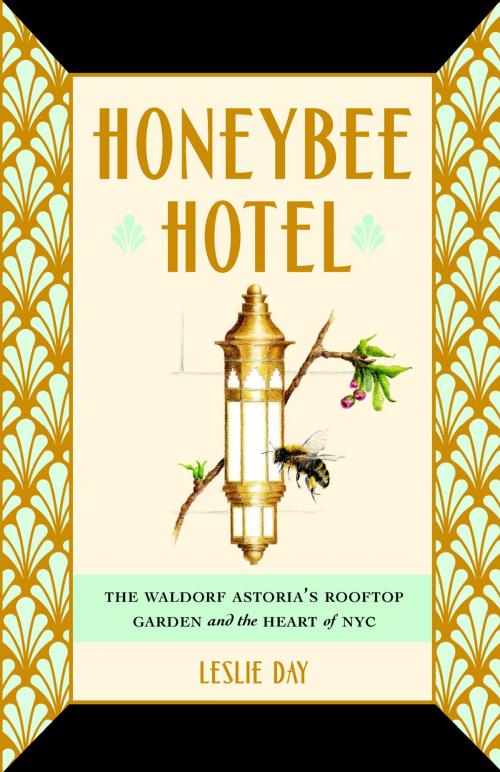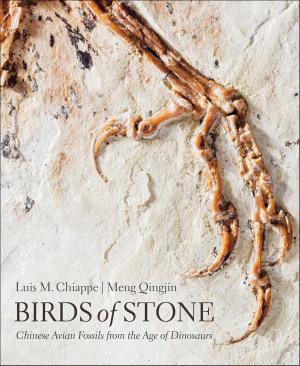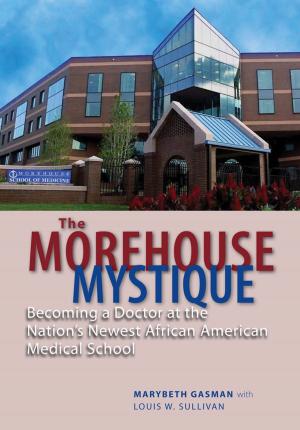Honeybee Hotel
The Waldorf Astoria's Rooftop Garden and the Heart of NYC
Nonfiction, Science & Nature, Science, Biological Sciences, Ecology, Biology| Author: | Leslie Day | ISBN: | 9781421426259 |
| Publisher: | Johns Hopkins University Press | Publication: | October 31, 2018 |
| Imprint: | Language: | English |
| Author: | Leslie Day |
| ISBN: | 9781421426259 |
| Publisher: | Johns Hopkins University Press |
| Publication: | October 31, 2018 |
| Imprint: | |
| Language: | English |
The tale of Honeybee Hotel begins over one hundred years ago, with the Astor family and the birth of the iconic Manhattan landmark, the magnificent Waldorf Astoria. In those early days the posh art deco masterpiece had its own rooftop garden for guests to enjoy. Fast-forward to the turn of the twenty-first century, and we meet executive chef David Garcelon, the creative genius behind the idea of restoring the celebrated rooftop garden. His vision included six hives containing some 300,000 honeybees, which would provide a unique flavor for his restaurant’s culinary masterpieces. Yet Garcelon’s dream was much grander than simply creating a private chefs’ garden: he wanted the honeybee garden to serve as a bond among people. Soon the staff of the hotel, the guests, local horticulturists, and beekeeping experts formed a community around the bees and the garden, which not only raised vegetables, herbs, and honey to be served in the hotel but also provided healthy food to the homeless shelter across the street at St. Bartholomew’s Church.
Through her meticulous research and interviews with culinary glitterati, entomologists, horticulturists, and urban beekeepers, Leslie Day leads us on a unique insider’s tour of this little-known aspect of the natural world of New York City. She familiarizes us with the history of the architectural and cultural gem that is the Waldorf and introduces us to the lives of Chef Garcelon and New York City’s master beekeeper, Andrew Coté.
Day, an urban naturalist and incurable New Yorker, tells us of the garden’s development, shares delectable honey-based recipes from the hotel’s chefs and mixologist, and relates the fate of the hotel in the wake of the Waldorf’s change of ownership. During our journey, we learn quite a bit about apiaries, as well as insect and flower biology, through the lives of the bees that travel freely around the city in search of nectar, pollen, and resin. This absorbing narrative unwraps the heart within the glamour of one of the world’s most beloved cities, while assuring us that nature can thrive in the ultimate urban environment when its denizens care enough to foster that connection.
The tale of Honeybee Hotel begins over one hundred years ago, with the Astor family and the birth of the iconic Manhattan landmark, the magnificent Waldorf Astoria. In those early days the posh art deco masterpiece had its own rooftop garden for guests to enjoy. Fast-forward to the turn of the twenty-first century, and we meet executive chef David Garcelon, the creative genius behind the idea of restoring the celebrated rooftop garden. His vision included six hives containing some 300,000 honeybees, which would provide a unique flavor for his restaurant’s culinary masterpieces. Yet Garcelon’s dream was much grander than simply creating a private chefs’ garden: he wanted the honeybee garden to serve as a bond among people. Soon the staff of the hotel, the guests, local horticulturists, and beekeeping experts formed a community around the bees and the garden, which not only raised vegetables, herbs, and honey to be served in the hotel but also provided healthy food to the homeless shelter across the street at St. Bartholomew’s Church.
Through her meticulous research and interviews with culinary glitterati, entomologists, horticulturists, and urban beekeepers, Leslie Day leads us on a unique insider’s tour of this little-known aspect of the natural world of New York City. She familiarizes us with the history of the architectural and cultural gem that is the Waldorf and introduces us to the lives of Chef Garcelon and New York City’s master beekeeper, Andrew Coté.
Day, an urban naturalist and incurable New Yorker, tells us of the garden’s development, shares delectable honey-based recipes from the hotel’s chefs and mixologist, and relates the fate of the hotel in the wake of the Waldorf’s change of ownership. During our journey, we learn quite a bit about apiaries, as well as insect and flower biology, through the lives of the bees that travel freely around the city in search of nectar, pollen, and resin. This absorbing narrative unwraps the heart within the glamour of one of the world’s most beloved cities, while assuring us that nature can thrive in the ultimate urban environment when its denizens care enough to foster that connection.















